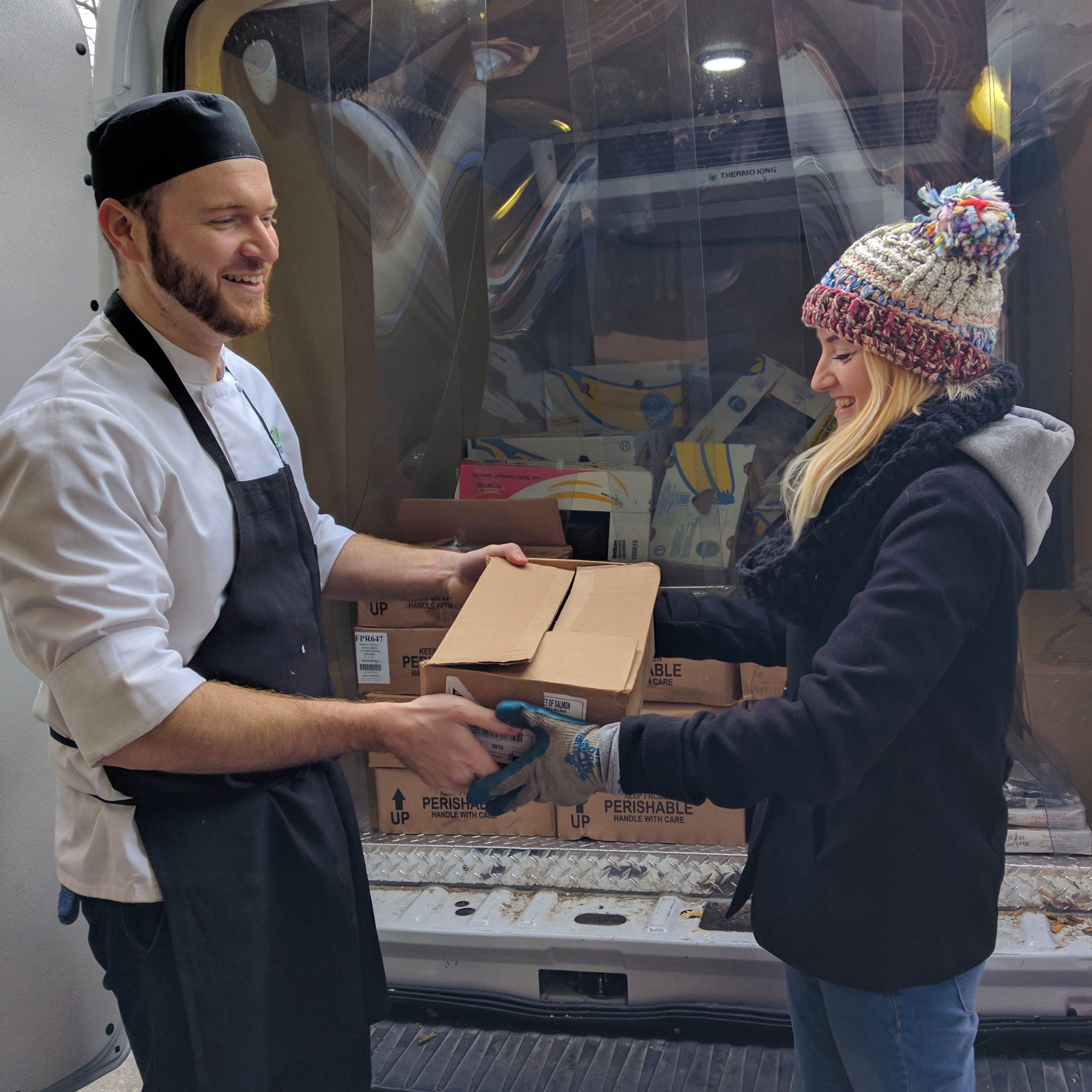Babson Participates in Local Food Rescue Program to Donate Thousands of Meals

December 7, 2017 (Wellesley, MA) – A number of schools and colleges in Wellesley and the Metro-West area will donate an estimated 20,000 meals this year to an organization in Cambridge that takes wholesome, edible surplus and leftover food and passes it on to people in need.
Wellesley’s 3R Working Group – which consists of representatives from the Department of Public Works, the Sustainable Energy Committee, and the Natural Resources Commission – has been working with the Environmental Protection Agency/New England and the Cambridge-based non-profit Food For Free to develop a collaborative food rescue initiative. The food service vendors dedicated to its implementation include Whitsons Culinary Group, Rebecca’s Café, Sodexo, Chartwells, and AVI Foodsystems. The initiative delivers on the goals of the EPA’s Food Recovery Challenge Program focusing on local K-12 schools, colleges and universities.
The collaborative food rescue program participants include Wellesley Public Schools, Babson College, Bentley University, Olin College of Engineering and Wellesley College. To date, over 4,000 pounds of food have been donated since September from Bentley, Olin and Wellesley Middle School; the program was rolled out in the other schools in recent weeks. With this critical mass of participating schools and colleges in place, other local organizations with serviceable leftover food will be encouraged to join.
Food For Free – a food rescue organization that distributed over 2 million pounds of food last year (www.foodforfree.org) – is repackaging this rescued food into single-serve meals. Recipients may include people living in shelters, in temporary housing such as motels, in housing without full kitchens, and those receiving Meals on Wheels.
“Translating this dream into a realty has been a complicated challenge as there were few precedents of such a comprehensive and collaborative initiative,” said Ellen Korpi, Vice Chair of the Town’s Sustainable Energy Committee. “It took the support and guidance of the Wellesley’s school administration, food services vendor, and the health department to bring this project to fruition.”
“In order to make it worth our sending a truck to this area, we needed a minimum volume per pick up,” explained Sasha Purpura, Executive Director of Food For Free. “Because these institutions collaborated and came to us as a group, we were able to view this as a single collection, making them a viable food donation partner.”
“The commitment and teamwork of the food services organizations is key to the success of such an initiative,” said Alison Cross, 3R Working Group member and author of the program’s standard operation procedures. “They are responsible for moving the surplus food through the process of collection, storage and preparation for pick-up, while protecting the integrity and safety of the food.”
Wasted food is a growing problem in this country and an untapped opportunity. In 2014 alone, more than 38 million tons of food waste was generated and the EPA estimates that food makes up the single largest category of waste material in landfills, constituting a fifth of discarded municipal solid waste. Much of this wasted food is wholesome and edible and could be serving the one in six, or 52 million American households, that were “food insecure” in 2013, according to the US Department of Agriculture. “Food insecurity,” which describes a household’s inability to provide enough food for every person to live an active, healthy life, is one way to measure hunger. In Massachusetts today, it is estimated that one in ten people are food insecure.
One of the side benefits that stem from food waste donation programs, according to the EPA, is that organizations that donate food see new opportunities for reducing leftovers. The donation process creates an informational feedback loop for waste generators that inevitably reduces both their wasted food, and their food waste removal costs.
As the 3R Working Group recruited local colleges for this program, conversations with MassBay Community College, located in Wellesley, revealed that 52% of the students surveyed there, indicated they were food insecure. Food For Free is now working with MassBay to develop a program for these students to receive food from the Food For Free Family Meals program.
For more information, go to https://wellesleyma.gov/811/4282/Waste-Wise-Wellesley or contact Marybeth Martello, Administrator, Wellesley Sustainable Energy Committee at mmartello@wellesleyma.gov, 781-431-1019 x2229.
